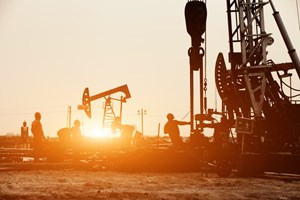Biden crackdown on Permian pollution to curb crude output, industry warns
(Bloomberg) — The Biden administration’s plan to crack down on smog in the oil-rich Permian Basin threatens to curb crude production while gasoline prices are near record highs and energy scarcity grips the globe, the industry warned Thursday.
Oil’s lobbying heavyweights are appealing directly to top White House officials to slam the brakes on the plan, arguing that any move to redesignate drilling hotbeds in Texas and New Mexico as violating ozone air quality standards poses such high economic risks it should be subject to greater analysis and public scrutiny.
The Environmental Protection Agency’s proposal to cut smog raises “the potential for increased operating expenses, decreased federal leasing revenues, permitting delays and decreased oil and natural gas production in the nation’s most productive basin,” the groups said in a letter to leaders of the White House Office of Management and Budget and its regulatory affairs office. The missive was sent Thursday by the American Petroleum Institute, American Exploration and Production Council, Texas Oil and Gas Association and other groups, who have spent weeks huddling over the potential consequences of the ozone plan since it was first outlined in a public notice last month.
The move by the EPA to consider giving the Permian a so-called non-attainment designation was encouraged by conservationists who say they are alarmed by indications ground-level ozone has surged along with oil and gas development. Ozone, which is the key ingredient of smog, is formed when volatile organic compounds and other air pollution that escapes smokestacks, tailpipes and oil wells reacts with sunlight. Even at low levels, it can worsen asthma, emphysema and other respiratory illnesses.
While Texas does not have monitors taking ozone readings on its side of the Permian, those just over the border in New Mexico’s Eddy and Lea counties have recorded average ground-level ozone exceeding the 2015 federal standard of 70 parts per billion several years running.
If the region is deemed in violation, state regulators would have three years to develop plans for lowering ozone levels, including by preventing new industrial facilities from worsening air quality and ensuring existing sites deploy technology to keep pollution at bay.
“A non-attainment designation would ensure that people and communities throughout the Permian Basin no longer suffer the harmful and costly effects of smog,” grassroots environmental and public health groups said in a July 12 letter to President Joe Biden.
The oil groups argue that the clampdown could result in existing facilities being forced to shut down and “could have the unintended consequence of slowing the approval of oil and natural gas infrastructure designed to reduce greenhouse gas emissions across the basin.” The potential economic impacts are so severe, they contend, the White House should consider the proposal a “significant regulatory action,” a designation that triggers more stringent review, and the EPA should open it up for public comment.



